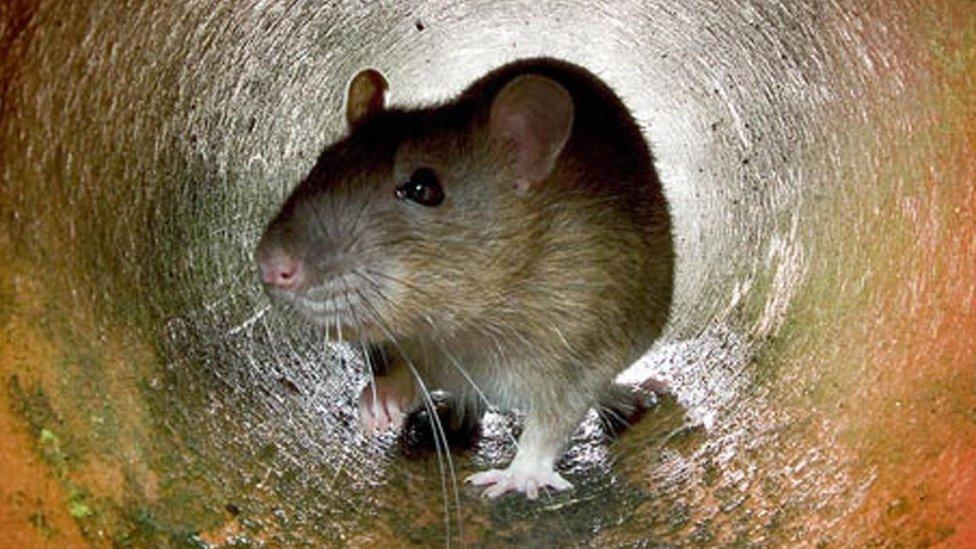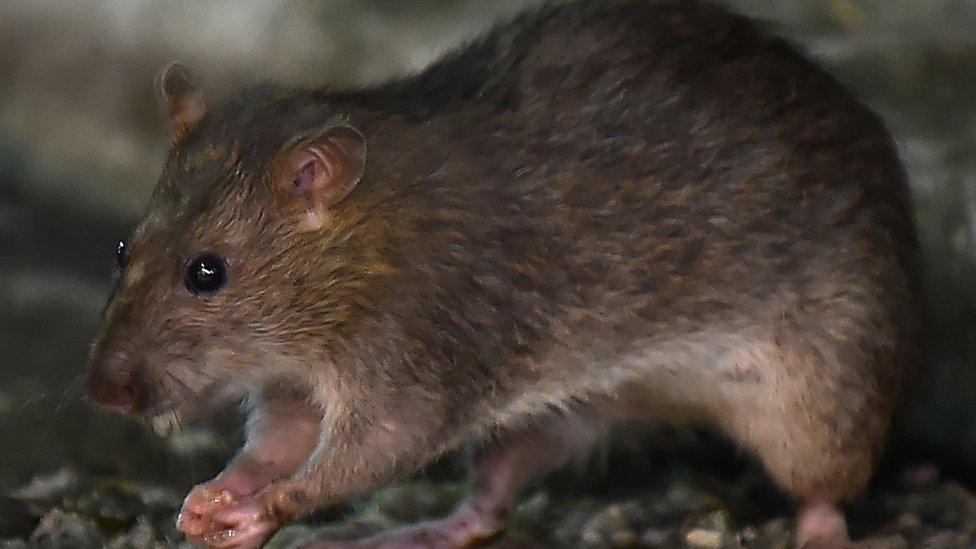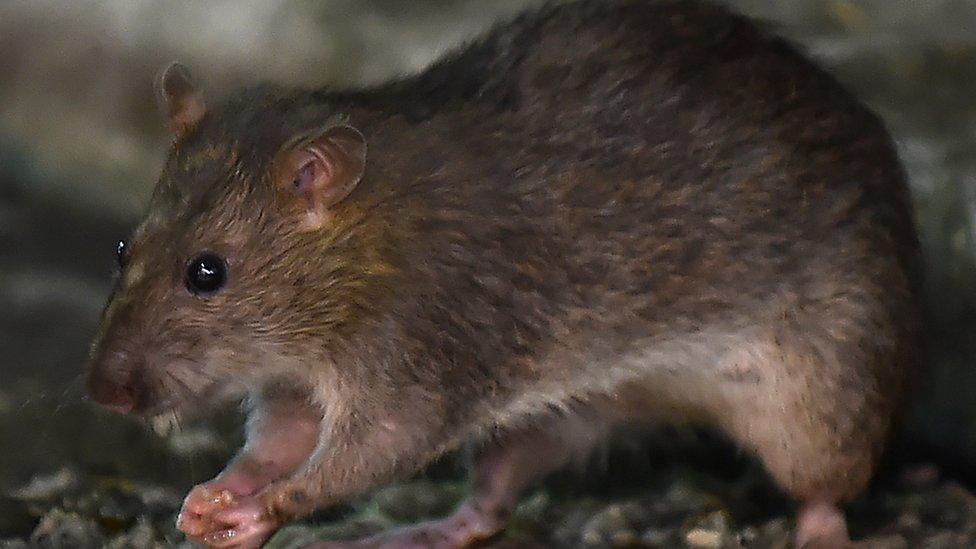Coronavirus: More rats 'in affluent areas' during lockdown
- Published

Rats and mice seem to have been on the move to different parts of the city
Rats have become more of a problem in the affluent areas of Cardiff since the start of lockdown, according to the council.
The local authority's pest control department has responded to a "significant rise" in calls for help, with rodents the biggest problem.
Council workers have seen a "marked shift" from rental areas with a high number of takeaways.
Instead, there have been calls to more affluent areas of the city.
These include Whitchurch, Pontprennau, Rhiwbina and Thornhill.
"We've never had a problem before, but one night we saw a mouse in the living room, running around under our legs," a Pontcanna resident said.
"I laid down traps and caught four mice on the first night, and one more after that."

A cat is one way of getting rid of the presence of rodents
Since getting a family cat, the mice have disappeared, but the resident added: "Our neighbours have had worse problems than us, unfortunately.
"On our street, we've seen a lot of poisoned rodents out on the pavement.
"There are loads around. But we're confident the mice are staying away from us now."
The city council's pest control department said it had received more calls for help at a time when they have less workers.
There are usually six technicians working on pest control, but two are currently shielding due to coronavirus.
In June, the team was booked to deal with 304 incidents of rats, compared with 184 during the same month in 2019.
The number of online inquiries for help with pests has also gone up with 206 inquiries in June this year, compared with 84 in the same month in 2019.
The team said the true number of people needing help with pests was much higher, with people calling private pest control companies directly.

Rats rarely leave an area if they find a food source
Rentokil said that rodent-related inquiries in the UK had increased by 22% between April and June compared to the same period last year.
Traffic to rodent advice pages on their website has also increased by 80%.
Pest control experts believe the rise in the number of people working from home may be contributing to the increase in the calls for help with pests.
One theory is that rodents and seagulls have been able to breed undisturbed in empty offices and car parks, with a Cardiff council spokesman saying about 80% of the incidents of rats seen in residential areas was connected to feeding birds in the garden.
They pointed out that anyone noticing a pest problem was obliged to intervene to try and get rid of them.
Pest experts said once rodents find a food source, they are unlikely to leave of their own accord, and early intervention is the best remedy as they may multiply quickly.
Cardiff council gives tips, including never leaving food in the garden, looking under sheds for nests, sealing bags of pet food in sheds and washing materials before placing them in recycling bags so seagulls do not rip them open.
- Published5 January 2020

- Published7 April 2020
